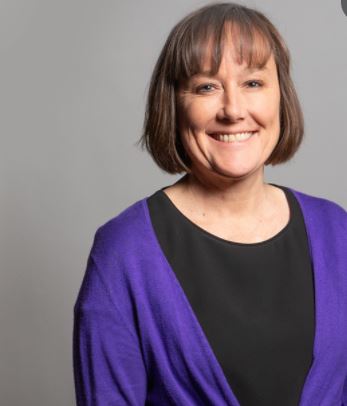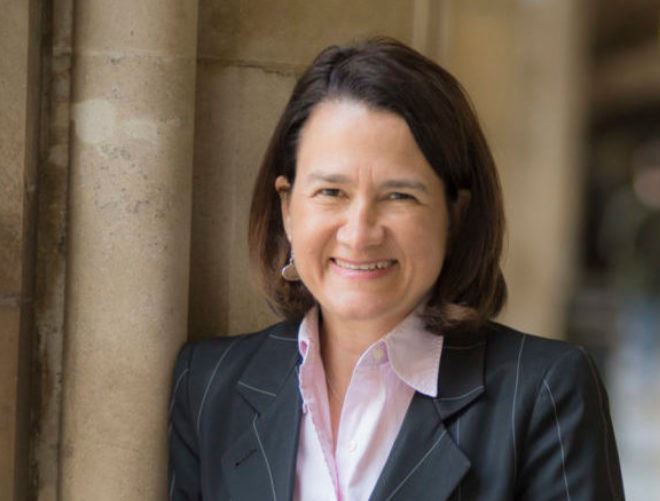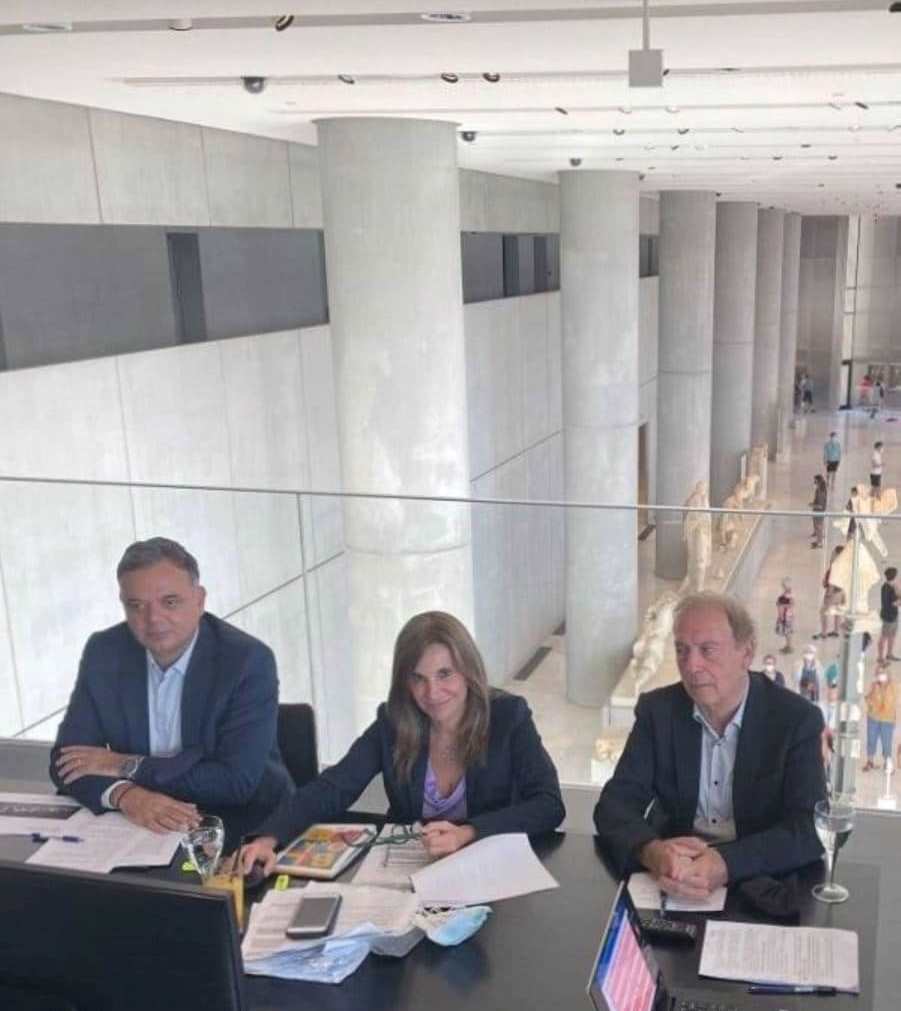On 13 June 2018, Vice-Chair of BCRPM, Professor Paul Cartledge wrote in the Frieze. It was at that time that the then leader of the Labour Party, Jeremy Corbyn had also announced his support for the reunification of the Parthenon Marbles in Greek newspaper, Ta Nea.
Paul Cartledge writes: 'The 5th-century BC artefacts were brought to London by Lord Elgin at the beginning of the 19th century, having apparently secured permission from the ruler of the Ottoman Empire, which occupied Greece at that time. They have been housed at the British Museum from 1816, and the Greek government has regularly lobbied for their return. Corbyn told the Greek paper: ‘As with anything stolen or taken from occupied or colonial possession – including artefacts looted from other countries in the past – we should be engaged in constructive talks with the Greek government about returning the sculptures.’ To read the full article in Frieze, follow the link here.
Support from Labour MP's saw two prominent Ministers at the heart of BCRPM's capaigns in the 90's and beyond, namely Christopher Price and Eddie O'Hara, respectively Vice-Chair and Chair of this committee. Support has always been there yet Tony Blair's government didn't do anything and tragically, there was no support from Gordon Brown.
Jeremy Corbyn was and continues to be supportive. And what of Sir Kier Starmer?

Labour Shadow Secretary of State for Wales, Jo Stevens spoke about the sculptures alongside a panel hosted by the BBC on Politics Live. This was post Greek Prime Minister, Kyriakos Mitsotakis' London visit and meeting with UK Prime Minister, Boris Johnson.

Labour MP for Hornsey & Wood Green and Shadow Foreign Minister (Europe & Americas), Catherine West also interviewed by Ta Nea on Thursday 02 December, was quoted as urging Prime Minister Boris Johnson to bring the matter of these sculptures to the House Commons. Catherine West feels that all MP's deserve to know the full story and have an open discussion.
In today's Ta Nea, UK Correspondent Yannis Andritsopoulos has once again interviewed Jeremy Corbyn, a firm supporter for the reunification of the Parthenon Marbles. Jeremy Corbyn hopes that Labour leader, Keir Starmer will also add his support.
“My position has always been that the Parthenon Marbles should be returned to Greece." Despite being a 'wonderful, beautiful' collection of sculptures, Jeremy Corbyn insists that the Parthenon Marbles do not belong in the British Museum and he hopes that the Labour Party will decide to defend this view.
“Boris Johnson may well be a classicist. He may well love Greece. I love Greece too." Adds Corbyn, and goes on to say that this love of Greece is not the justifucation for keeping the sculptures divided. He continues: "Let's be grown up about this.The idea that it's okay to forcibly remove things is wrong. Cultural artefacts are there for all, but they really belong in the place that they were made and developed in the first place.”
Chair of BCRPM, Janet Suzman stands by the release issued in 2018 where she concludes: “Nothing will change in relation to the Parthenon marbles until and unless there is a meeting of minds at head of state level between Greece and Britain.” A sentiment that also formed the Decision made at the 22nd session of UNESCO's ICPRCP meeting 27-29 September 2021.
RECOMMENDATION 22.COM 6
The Committee,
Recalling that the issue of the Parthenon Sculptures has been a pending item in the Committee’s Agenda since 1984,
Acknowledging relevant UNESCO recommendations expressing its continuing concern for a solution to the issue of the Parthenon Sculptures,Recalling that the Acropolis of Athens is an emblematic monument of outstanding universal value, inscribed in the World Heritage List,
1.Acknowledges the ongoing cooperation between Greece and the United Kingdom on cultural matters and expressesthe wish that it should continue with a view to conclude the ongoing discussions in respect of the reunification of the Parthenon Sculptures;
2.Notesthat Greece invites the United Kingdom to collaborate with Greece in exhibiting all the Parthenon Sculptures in their respective collections in the Acropolis Museum;
3.Takes noteof the Acropolis Museum’s invitation to the British Museum in order to advance further collaboration on Parthenon studies; which the British Museum warmly accepted;
4.Also takes noteof the good progress made by the Acropolis Museum and the British Museum in the collaborative programme of digital scanning of the sculptures of the Parthenon in both museums;
5.Further acknowledges that an official letter was sent in August 2013 by UNESCO to the United Kingdom government and the British Museum, inviting them to explore the possibility of the United Kingdom agreeing to the procedure foreseen in the Rules of Procedure for Mediation and Conciliation within the framework of the ICPRCP;
6.Thoughtfully takes note of the fact that, in March 2015, the United Kingdom government and the Trustees of the British Museum informed UNESCO in separate letters respectively that they did not believe that the application of the mediation procedure would substantially carry forward the debate and that they had decided respectfully to decline the request;
7.Thoughtfully takes note that, following the Committee’s Recommendation 21.COM 7, Greece sent to the United Kingdom an invitation to a bilateral expert meeting in Athens which was not accepted by the United Kingdom;
8.Expresses concern that the Duveen Gallery of the British Museum is not currently open to the public, due to essential repairs and looks forward to its reopening in due course;
9.Calls upon Greece and the United Kingdom to intensify their efforts with a view to reaching a satisfactory settlement of this long-standing issue, taking into account its historical, cultural, legal and ethical dimension;
10.Invites the Director-General to assist in convening the necessary meetings between Greece and the United Kingdom with the aim of reaching a mutually acceptable solution to the issue of the Parthenon Sculptures.
DECISION 22.COM 61
The Committee,
1.Recalling Article 4, paragraphs 1 and 2 of its Statutes,
2.Noting that the request for the Return of the Parthenon Sculptures is inscribed in its Agenda since 1984,
3.Recalling its 16 Recommendations on the matter,
4.Recalling further that the Parthenon is an emblematic monument of outstanding universal value inscribed on the World Heritage List,
5.Aware of the legitimate and rightful demand of Greece,
6.Acknowledging that Greece requested the United Kingdom in 2013 to enter into mediation in accordance to the UNESCO Rules of Procedure for Mediation and Conciliation,
7.Recognizing that the case has an intergovernmental character and, therefore, the obligation to return the Parthenon Sculptures lies squarely on the United Kingdom Government,
8.Expresses its deep concern that the issue still remains pending;
9.Expresses further, its disappointment that its respective recommendations have not been observed by the United Kingdom;
10.Expresses its strong conviction that States involved with return or restitution cases brought before the ICPRCP should make use of the UNESCO Mediation and Conciliation Procedures with a view to their resolution;
11.Calls on the United Kingdom to reconsider its standand proceed to a bona fide dialogue with Greece on the matter

The presentation by Greece at UNESCO's ICPRCP 22nd Session took place on Wednesday the 28th of September 2021. Greece was represented by the Ministry of Culture by the Secretary General of Culture George Didaskalou, the new General Director of the Acropolis Museum Nikolaos Stampolidis, the Head of the Directorate of Documentation and Protection of Cultural Heritage, and Legal Adviser of the Special Legal Service of the Ministry of Foreign Affairs, Artemis Papathanassiou (all pictured above). For the first time, apart from the recommendation, a decision with stronger wording was also agreed.